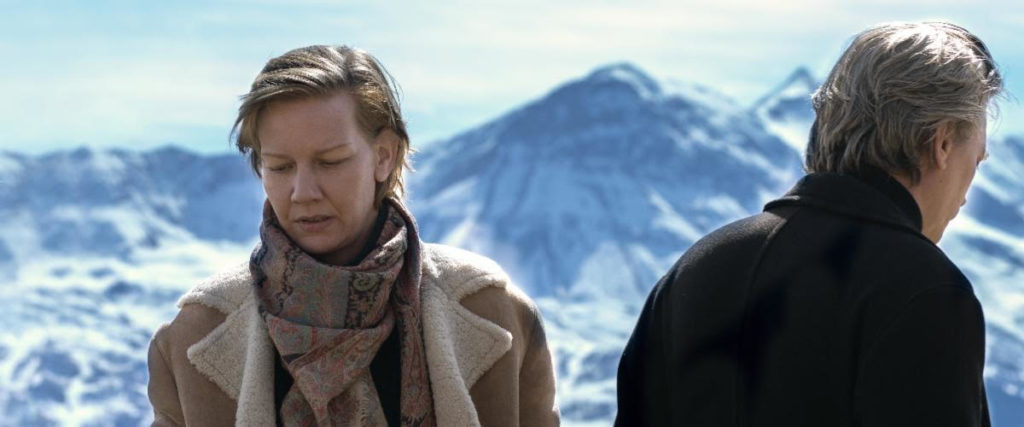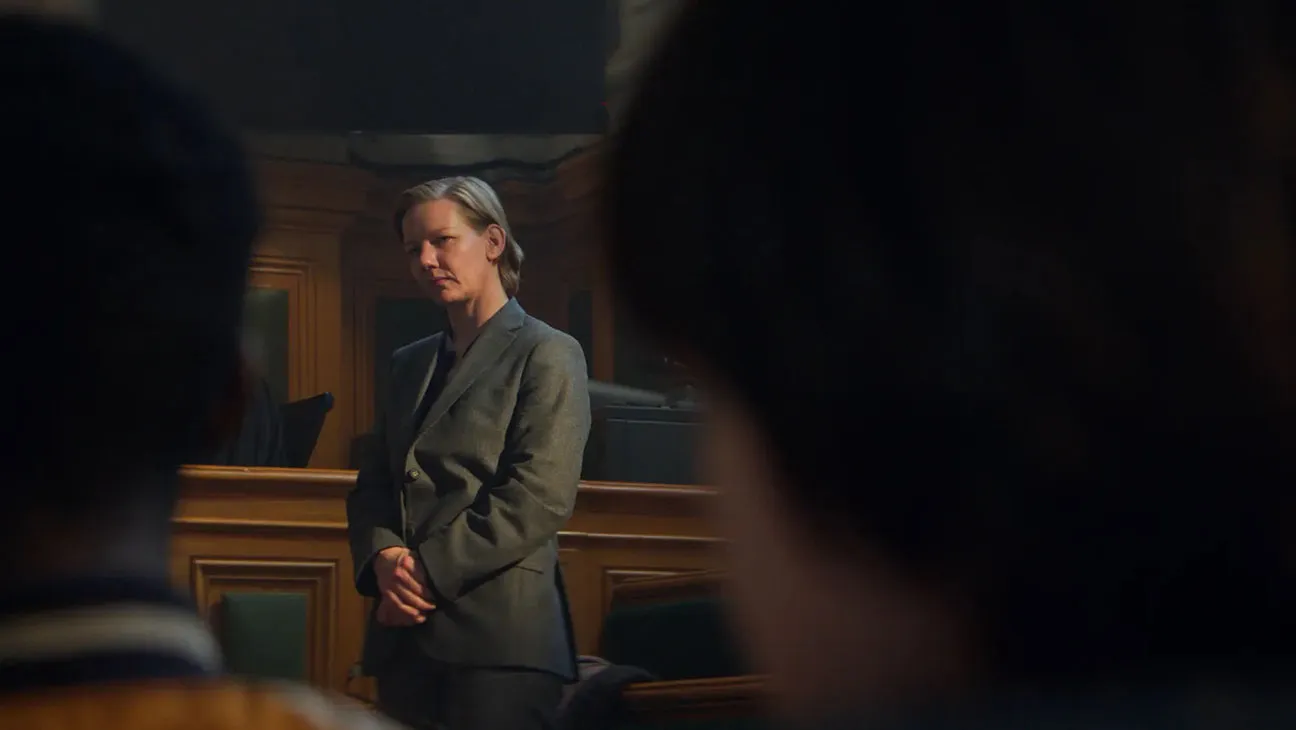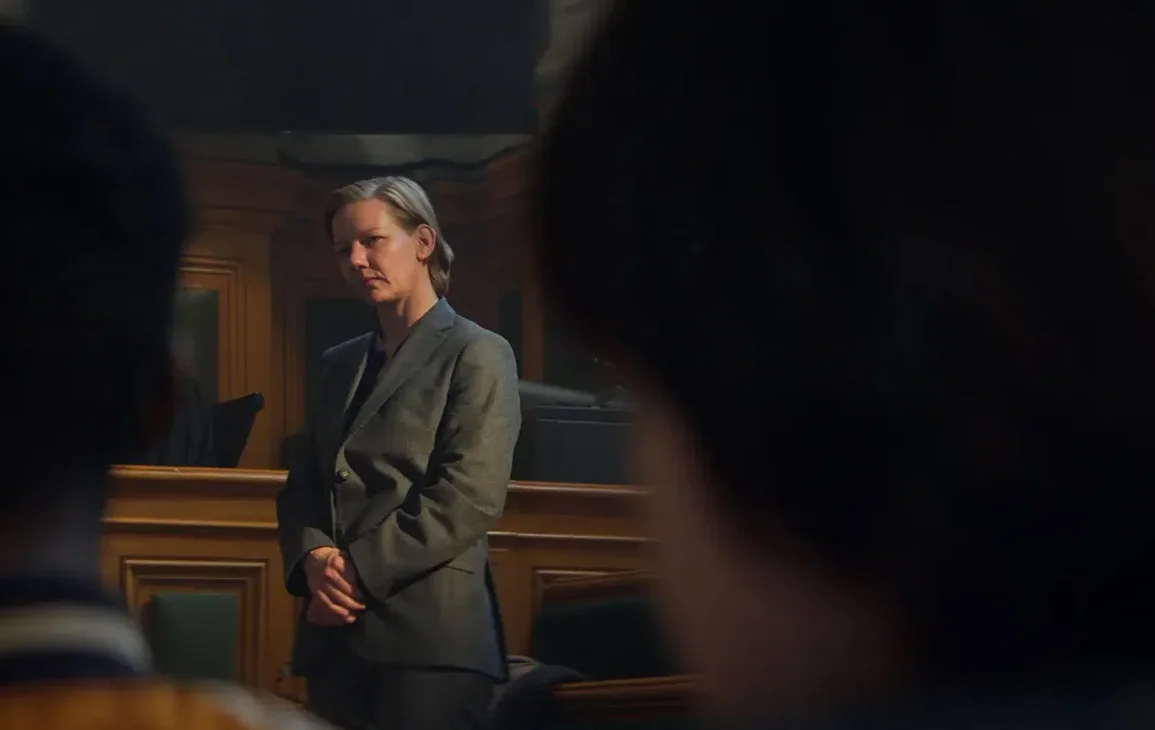Justine Triet directs Anatomy of a Fall. The film stars Sandra Hüller, Swann Arlaud, Milo Machado-Graner, Antoine Reinartz, Samuel Theis and Jehnny Beth.
Anatomy of a Fall is a courtroom-based drama focusing on Sandra, a German writer trying to prove her innocence in her husband’s death. Did she, or didn’t she? This question is posed to the court and the audience throughout the film. When her husband is found dead under mysterious circumstances at their family residence in France, the only two options are suicide or marital murder. With the only witness being the couple’s blind 11-year-old son, Sandra must fight to prove her innocence.
A film of this nature lives and dies by the audience’s view on the accused and the ability to have their fate unknown. We must never fully commit to the idea that Sandra killed her husband but also not commit to the suicide option. Anatomy of a Fall succeeds in having the audience continuously question both matters. The ambiguity of death is what drives not only the film’s narrative but the audience’s engagement. This is achieved in many ways, with the main two being the masterful screenplay and Sandra Hüller’s extraordinary performance.
Justine Triet and Arthur Harari’s screenplay is a primary factor in the film’s brilliance. The way information is continuously fed to the courtroom and the audience is meticulously done. The constant changing of opinion when new evidence arrives has the audience fully engaged as if we were on the jury ourselves. Heightening this ongoing struggle of what to believe are the opinions of the characters in the film, which are never explicitly revealed via speech. It isn’t just the audience questioning the murder but every character which appears on screen.
We are shown events pre-death in intelligent ways and are given visual stimuli that the court is not. Not only does this heighten the audience’s view of the events, but it also allows for a better viewing experience. It keeps the viewer engaged and allows for moments of thought. It gave the audience time to sit with Sandra outside the courtroom and see her demeanour.

Sandra Hüller has a commanding screen presence and puts herself right in the Best Actress award race with her performance. The performance constantly has the audience contemplating the information fed through the legal prosecution team. Her character has a way of swaying the people around her with random emotional moments, flirtation and what seems like a genuine feeling of loss. It is, however, impossible to get a reading on her. Even after the verdict was given, I still questioned whether she did it or didn’t.
Whilst Sandra leads with an award-winning level of performance, she is supported by an excellent cast. The cast includes a few members who destroy the old notion of never working with children or animals on a film set. Milo Machado-Graner, who plays Sandra’s visually impaired son, put forward an emotionally driven performance. Alongside him was a Border Collie named ‘Messi’ who played the family’s dog. The pair were vital in the story and, at one point, had me wiping away tears from sadness.
It is scary to think about real-life cases like those in the film. So much is up to interpretation and other people’s opinions. The way particular views can be painted as facts and the idea that your life is in the hands of other people who are only learning about your nature through snippets. The film never answers how Sandra’s husband died and perfectly leaves the viewer questioning what has transpired on screen. Through performance, script and clever timeline manoeuvring, the ambiguity of the event is left to interpretation.
Anatomy of a Fall is Triet and Hüller working at the highest level the film industry offers.









